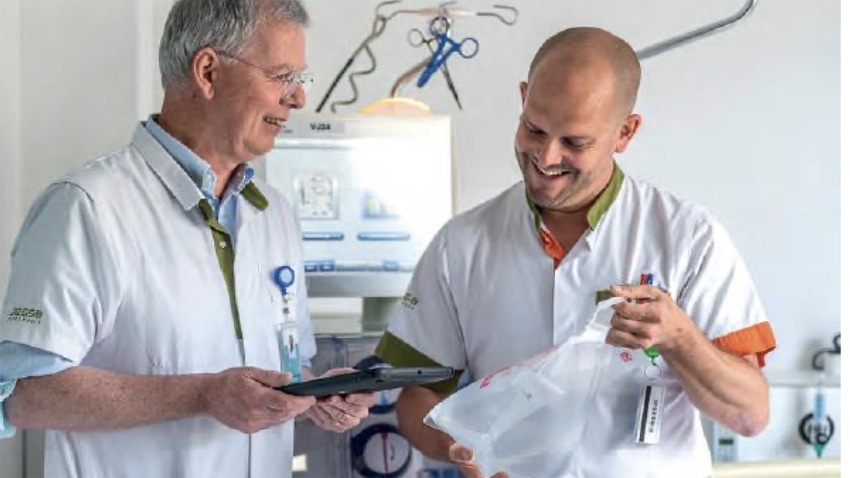Medical Plastic Waste Gets New Lease on Life Via Advanced Recycling
A pilot project involving Sabic and the dialysis department of a major Belgian hospital puts medical plastic waste on a circular path.
April 2, 2024

Sustainable practices slowly but surely are coming to the medical space. A proof-of-concept pilot project in the dialysis department at a major hospital in Belgium reportedly has shown that non-contaminated medical plastic waste can be converted to pyrolysis oil in an advanced recycling process to produce circular feedstock. In turn, the feedstock can be used to produce plastics that achieve the same levels of performance, purity, and physiological safety as virgin medical-grade polymers.
Certified circular polymer for healthcare market
The project is a collaboration between chemicals company Sabic and the dialysis department at Jessa Hospital in the Limburg region of Flanders, Belgium. Because the feedstock derived from waste plastics produces polymers on a par with virgin materials — a crucial requirement in strictly regulated medical applications — Sabic is able to create a certified circular TruCircle polymer portfolio for the healthcare market. Sabic invites other players in the value chain to join it and Jessa in this “ground-breaking initiative to accelerate the circularity of plastics in the medical industry,” the company said in a press release.
Part of the hesitation in advancing recycling of medical plastic waste is the perception that the materials are contaminated. In fact, approximately 85% of the used medical plastic generated at the hospital is not contaminated and, therefore, requires no specialized treatment. The same is true at many hospitals in the United States and elsewhere. This allows the waste plastic to be repurposed as feedstock via advanced recycling and the subsequent production of high-quality medical-grade polymers. The process saves virgin raw material and contributes to a more circular medical economy, said Sabic.
Technology eliminates incineration of waste medical plastic
Sabic’s expertise in advanced recycling technology and the experience it has gained through its TruCircle portfolio made the company a reliable partner to help Jessa Hospital reduce the environmental footprint of its medical products by avoiding their incineration after use.
“We are very pleased with the advanced and circular recycling approach enabled by Sabic to improve our medical waste management,” commented Karl Zwinnen, project engineer at Jessa. “The setup of an efficient collection system for used medical plastic has met with strong support among our medical and healthcare staff. Besides contributing to enhanced sustainability and circularity, the solution also has an enormous potential for reducing our disposal costs. We look forward to implementing it across all Jessa locations.”
Sabic’s certified circular materials are produced using mass balance accounting according to the International Sustainability & Carbon Certification (ISCC) PLUS program, which defines a set of transparent rules for tracking the material flow across complex supply chains from the feedstock to final applications. The resulting certified circular polymers form part of the company’s TruCircle portfolio and services.
About the Author(s)
You May Also Like

